Radical policies more deperately wanted than ever
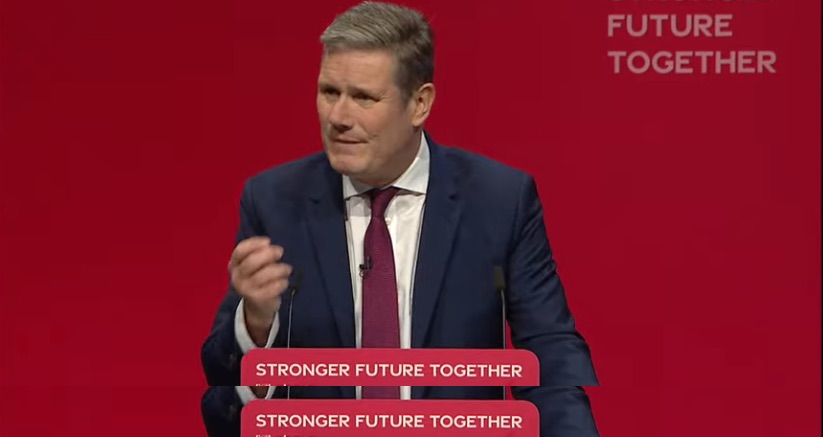
JVL Introduction
In this article Ell Folan, founder of Stats for Lefties and a columnist for Novara Media, takes a careful look at what the data suggests the public wants.
None of it suggests peopl are crying out for the Labour leadership’s priorities.
Rather, a Green New Deal to boost the economy and protect the environment, higher wages for workers and a publicly owned, well-funded health service sit well with current preoccupations.
The conclusion is simple: “If Labour wants to capture the public mood in 2021, it could do worse than to listen to its own members.”
This article was originally published by Novara Media on Tue 12 Oct 2021. Read the original here.
Who’s More in Touch With Voters, Labour Members or Labour’s Leader?
In opposing the left, Keir Starmer risks alienating the very voters he needs to win.
During the Labour party’s 2021 annual conference, delegates voted to back a series of bold policies to tackle the challenges facing Britain. Labour members voted to back a £15 minimum wage; a “socialist Green New Deal”; public ownership of energy utilities; and a proportional electoral system (though this last motion failed due to trade union opposition).
And yet, watching Keir Starmer’s 90-minute speech on the last day of conference, you wouldn’t know it. Only the Green New Deal was mentioned in the speech, and even then only in a watered-down form. Starmer’s top team flooded the airwaves to hurriedly pour cold water on members’ demands: shadow chancellor Rachel Reeves pledged to get “our public finances under control”, shadow home secretary Nick Thomas-Symonds ruled out a £15 minimum wage, and Starmer himself rejected nationalisation of energy companies. It seems that the leadership’s overriding message from the party conference was simply one phrase: “this is not the moment.”
Starmer’s supporters are confident that this policy-lite approach is in tune with the public mood. But with recent polling showing that Starmer is less popular than Jeremy Corbyn, the strategy doesn’t seem to be working. As Labour struggles in the polls, the very policies Starmer has repeatedly rejected remain hugely popular with voters. Maybe his members know something that he doesn’t?
Policy.
When it comes to specific policies that members backed, it certainly seems that members are more in touch with voters. For instance, despite Starmer rejecting the idea, a poll conducted on 29 September found that 65% of voters backed increasing the minimum wage to £15 over the next few years. This includes nearly 80% of Labour’s own voters. Even though the leadership opposes the idea, Labour members endorsed it during the party’s annual conference – putting them far more in tune with the electorate than the party leadership on this issue.
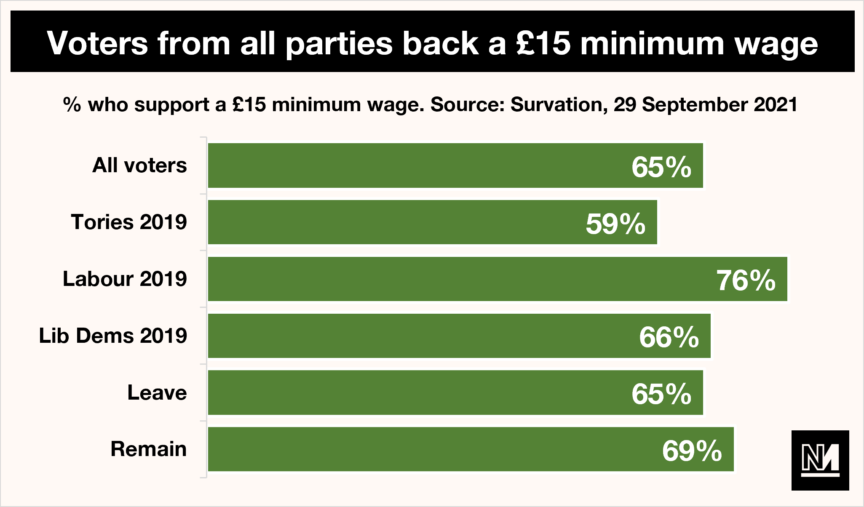
(Ell Folan/ Novara Media)
But it’s not just that members and voters agree on the issue of wages: it’s that party members, who endorsed a £15 minimum wage despite opposition from the leadership, are more in touch with the economic reality faced by the electorate.
Take, for example, housing. Between 1971 and 2015, average house prices rose a stunning 43.6 times. Had wages risen in line with house prices, the average hourly wage would be £34.85 – compared to the current minimum hourly wage of £8.91.
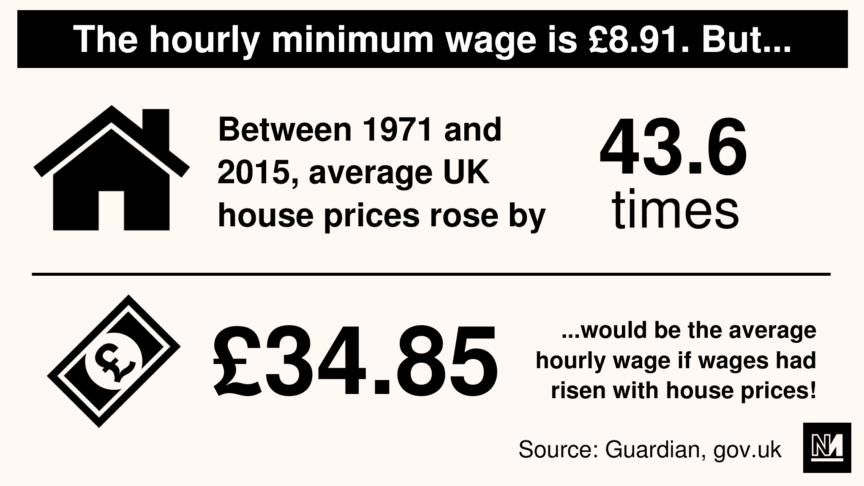
(Ell Folan/ Novara Media)
In this context, Starmer’s refusal to consider anything but a £10 minimum wage is laughably out of touch with the reality of how voters actually live. This is also true on the issue of energy nationalisation. Despite Rachel Reeves insisting that “this is not the moment” to bring energy companies into public ownership, most voters are getting a raw deal from the free market: it’s been estimated that by this time next year, annual energy bills will be an eye-watering £500 higher than they were in March 2021.
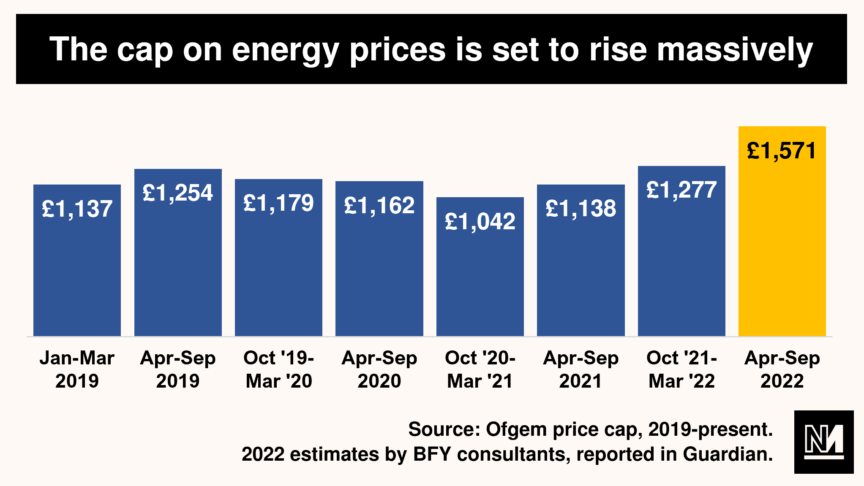
(Ell Folan/ Novara Media)
Given these massive price rises, it should be unsurprising that both voters and Labour members concur on nationalising energy companies. Polling from Opinium shows that 53% of voters would back the idea, with just 15% opposed. Yet Starmer has ruled it out. Once again, Labour members – who spend every day dealing with rising energy bills, like their fellow voters – are in touch with the electorate on this key issue, whilst the leadership is swimming against the tide of public opinion.
The final policy worth considering is proportional representation (PR). Though the proposal failed to pass at conference due to trade union opposition, 70% of constituency delegates cast a vote in support of the idea. Starmer, by contrast, did not express support for the idea; this was interpreted by some as a rejection of PR by the leader. Yet once again, members are in touch with the electorate – voters back PR by a margin of 44% to 15%, according to a recent SavantaComRes survey.
Priorities.
The leadership is also out of touch with voters in a more general sense, on which issues to prioritise. Starmer and Labour’s recent announcements make clear that the leadership’s focus is on reducing crime through higher police numbers, cutting taxes for businesses, appearing fiscally credible and stopping a leftwinger from ever becoming Labour leader.
But all the data suggests that voters are not particularly concerned about these things. Just 21% of voters think crime is one of the top issues facing Britain, with healthcare (48%), the economy (44%) and the environment (31%) all ranking far above it. Far from wanting tax cuts for businesses, 52% of voters think firms should pay more tax. And as for fiscal credibility? 65% of voters want higher taxes on the rich, 70% want more money spent on the NHS, and 59% view the furlough scheme as a success.
Finally, despite the leadership’s incessant focus on distancing themselves from Corbyn’s leadership, polling from 2019 shows that opposition to Corbyn was a concern for just 4% of voters – and polling in 2021 shows that more voters now approve of Corbyn than approve of Starmer himself.
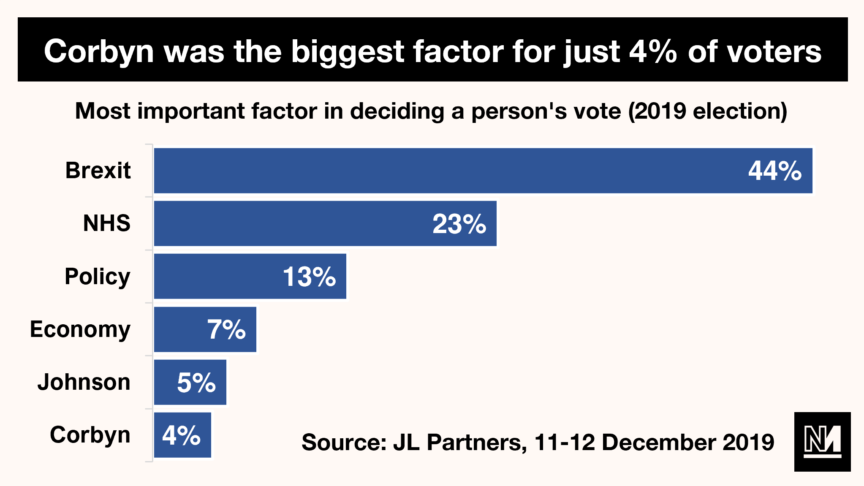
(Ell Folan/ Novara Media)
None of this data suggests that the public is crying out for the Labour leadership’s priorities. Rather, the public mood has been captured far more accurately by Labour members’ priorities as expressed at conference: a Green New Deal to boost the economy and protect the environment, higher wages for workers and a publicly owned, well-funded health service.
But why are members so much more in touch with voters than the leadership? I would ascribe it to the fact that Starmer and his shadow cabinet are full-time politicians who spend most of their time in central London. Their days are filled by talking to Westminster insiders, socialising with Westminster insiders, debating the opinions of Westminster insiders, and reading columns written by Westminster insiders. They are far, far removed from the actual experiences of ordinary voters.
Labour members, by contrast, are ordinary voters – they work normal jobs, socialise with non-political people, volunteer for Labour alongside their other work and experience the same financial pressures that most people experience. They are far more in tune with what their communities and families need than the party leadership in Westminster.
In this context, the gulf between the leadership and the voters makes total sense. The received wisdom in Westminster is that Blair’s 1997 campaign was the peak of electability, and Starmer is now re-enacting it, right down to recycling the”tough on crime, tough on the causes of crime” slogan. This worked in 1997: for a variety of reasons, it caught the public mood. But it is not 1997 anymore, and if Labour wants to capture the public mood in 2021, it could do worse than to listen to its own members.
Ell Folan is the founder of Stats for Lefties and a columnist for Novara Media.

Absolutely right, Eli. It’s hard to believe that the current Labour leadership is in any way serious about ever winning an election.
You don’t have to be an out and out populist to see that it’s a good idea to adopt policies that are popular. When those policies align with traditional values, it’s a no-brainer. Unfortunately, it seems some of our leaders either have no brains – or they are determined to keep Labour out of government.
Ally that with concerted efforts to push/kick out of the party the people who work so hard to win elections AND the adoption as potential candidates of people who have only recently been working to destroy the party and you have a toxic combination. It’s heartbreaking.
Toxic. Heartbreaking. Agree.
I was getting really angry at Starmer and Ashworth, who were not telling the public of what was happening to Our NHS. (I’ve still heard nothing )Here’s what I did:-
My official complaint to the LP, that I made against another LP member!!
I’ve sent a complaint in to the LP.
The form asks, who is the person you are complaining about, ‘Kier Starmer’, it goes on, some questions are impossible to answer, obviously because it wasn’t set up so we could complain about the Leader. In the end they accepted the complaint and it will be investigated, I did receive an email saying it would be going before the NEC. be interesting to see what comes of it.
As evidence, I pasted in my email to Starmer and Ashworth, saying he never answered or said anything about it in public, this is why I’m complaining. I added that I posted it on his Twitter account and his Facebook page, I even used it as replies and as a comment many times.
Here’s the email I sent to him and Ashworth.
You are being handed a Golden Opportunity to attack this Pathetic and Nasty Tory Government, yet we hear nothing from you, Why??? Let me help you, this is all researchable.
Tories, “The NHS is safe in our hands” and “We will never Privatise the NHS”. They Lied, they’ve closed Hospitals, Wards, Beds and A&Es, we are 40k nurses, 20k Dr’s and GPs short.
In 2018 the NHS paid £9 billion to Privuate Companies to run parts of it and that figure is accelerating year on year. All NHS Dentists are now run by Private Companies and it isn’t free at the point of need, ‘check up, clean and descale, plus one filling £62 (topped up by the NHS) causing hundreds of thousands of poor people to avoid going to the Dentist until they are desperate. GP Surgeries up and down the Country are stopping many treatments, ie chiropody, earwax removal and have now announced another 31, (see link 3) on top of the 17 procedures and treatments that were stopped 2 years ago, (see link 2) with more to come. Why not let the doctors decide, some of these procedures and operations save 10s of thousands from suffering.
Link 1, is Doctor Bob Gill, who describes how it is being broken up and run down.
1.
Doctor Bob Gill video.
Telling you what is happening to our NHS in great detail.
https://www.youtube.com/watch?v=w2c3lQsvkZ4&feature=share
2.
https://www.theguardian.com/society/2018/jun/29/nhs-wields-the-axe-on-17-unnecessary-procedures
3.
https://calderdaleandkirklees999callforthenhs.wordpress.com/2020/08/22/please-say-no-right-now-to-withdrawal-of-routine-nhs-funding-to-31-tests-treatments-and-medical-procedures/?fbclid=IwAR3tb9WYA_g0iyyE2ECePImkmiYx-zczv-wJVYYiWfDwLEwlnUB1B3fiTTc
Why are we putting our discontent into the labour party ? They have, and will likely continue to fail us, especially under Sir Keith, and unfortunately, Corbyn, the supposed radical, has just been allowing himself to be pushed around, rather than fighting back or trying to establish his own party.